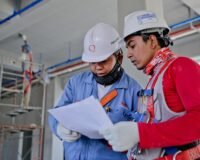Tax credits provided for the construction sector involve the deduction of up to 110 percent Italy of taxes. Credit trade or invoice discount can be requested by Italian citizens residing abroad as well as by foreigners, whether or not resident in Italy, who own a property in Italy for residential use, i.e. which is not used for the exercise of business, arts and professions, unless it is part of a condominium, in which case it can enjoy the facilities provided for the common parts.
Construction bonus for foreigners. Criteria and requirements to obtain assignment for foreign property owners in Italy.
The ways to access credit were clarified by the Italian Tax Revenue Office a few months ago: even non-Italian, non-resident subjects who own a property for residential use in Italy can access the maxi deduction of Italy 110 Superbonus, trade the credit or apply for an invoice discount. To summarize, the subjects entitled to the Italy 110 Ecobonus, or other types of building bonuses are non-resident foreigners who:
- own a property in the Italian territory for residential use in apartment blocks, single-family residential buildings and related appurtenances, functionally independent residential real estate units with one or more independent accesses from the outside located inside multi-family buildings and related appurtenances, individual residential real estate units and related appliances inside condominium buildings but in this case only for linked secondary works.
- the works planned for the property must be those established by art. 119, Decree 34/2020, i.e. those related to the energy efficiency of the buildings such as thermal insulation, fixtures, air conditioning systems, anti-seismic systems, photovoltaics, electric car chargers, etc.
The properties must not be high prestige, luxury, or artistic buildings of category A8 or superior, and each individual property must be functionally independent or have individual access and energy supply systems.
Here’s how to get the Italy 100 Superbonus for foreign citizens who own a house in Italy or Italians who own a house in Italy but resident abroad. Adhere to the Interpello to the Revenue Agency. Ask for instructions to get building bonuses. Fill out the contact form
How to obtain “Superbonus” 100 for foreigners residing in Italy
The 110% tax break and financial benefits are the same as for residents:
- 110% tax credit against Italian tax liabilities (Italian income tax) over 5 years (4 years for works made in 2022);
- Transfer of the tax credit to a third subject;
- Discount on the invoice of the works supplier.
Problems might arise for the deduction. In fact, the income generated by a foreigner, whether or not resident in Italy, could be insufficient to generate the gross tax from which to deduct the 110% accrued with the tax credit. In any case, this does not affect the foreigner’s right to benefit from the tax credit, which is guaranteed by the land income generated by the property, and therefore, even in case it is insufficient for direct deduction, the tax credit can be earned using one of the other two methods stated by the110 law Italy.
.
Leading works and linked secondary works also recognised with invoice discount for foreigners
The renovation tax credit for non-residents works in the same way as for residents. The condition is to own a property according to Italian regulations, as specified above. Just like residents, foreigners can also finance ‘leading works’ (interventi trainati), i.e. works that can be financed and covered by the tax break, but carried out alone do not give access to credit. The works that give immediate access to the SuperBonus 110% (‘leading works’) are:
- thermal insulation of more than 25% of the vertical, horizontal or inclined external surface area of a residential building (cladding);
- roof insulation;
- replacement of winter heating equipment;
- seismic improvements that will increase safety to earthquakes.
Another type of works (linked secondary works) can be financed as long as they are carried out at the same time as those mentioned above, namely:
- removal of architectural barriers in favour of people with mobility difficulties and people over the age of 65, even if not actually residents;
- energy efficiency of the property units that form the single building;
- purchase and installation of solar shading;
- purchase and installation of micro-cogenerators that replace existing systems;
- installation of electric car chargers, but only if the primary works ensure an improvement of at least two energetic classes of the whole property;
- installation of solar panels connected to the electricity grid.
Non-resident property owners can access other types of construction bonus schemes as long as they accrue at least a land income in Italy, e.g. those for renovation or for specific works, such as the installation of lifting systems for the reduction of architectural barriers. In such cases, the tax reduction or the invoice discount vary from 50% to 75%, depending on the bonus requested.

















